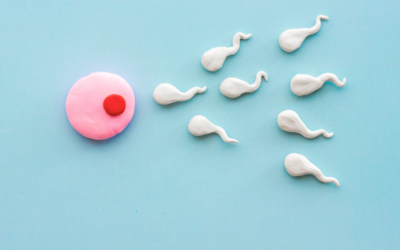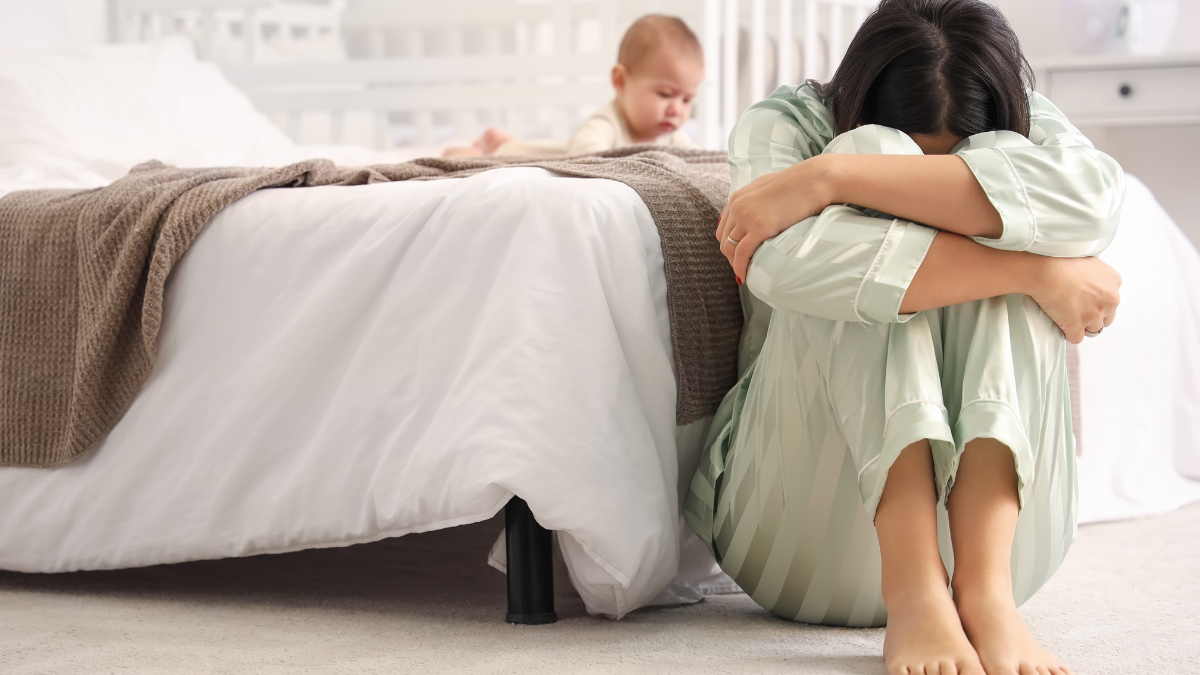Postpartum psychosis is one of the most alarming and misunderstood mental health conditions that can affect new mothers. While many women hear about baby blues or even postpartum depression, very few are warned about the sudden, intense experience of postpartum psychosis. This rare condition can appear quickly—often within the first few days or weeks after giving birth—and can leave moms feeling scared, confused, or completely out of touch with reality.
If you’re a new mom or soon-to-be mom, it’s important to understand that postpartum psychosis is not your fault. It’s a medical emergency that needs immediate attention—but with the right care and support, full recovery is absolutely possible. Whether you’re currently facing this condition or looking for ways to support someone who is, these 10 amazing tips to overcome postpartum psychosis can help guide you toward healing, hope, and stability.
Let’s dive in and learn how you can take back control of your mental health—one step at a time.
Table of Contents
What is Postpartum Psychosis?
Postpartum Psychosis is a rare but serious mental health emergency that can occur after childbirth. It affects approximately 1 to 2 women out of every 1,000 who give birth. Unlike the more common “baby blues” or even postpartum depression, Postpartum Psychosis causes a complete break from reality. It usually begins suddenly, often within the first few days to two weeks after giving birth.
Key Characteristics of Postpartum Psychosis:
- Sudden onset, usually within 2 weeks postpartum
- Delusions (false beliefs)
- Hallucinations (seeing or hearing things that aren’t there)
- Extreme confusion or disorganized thinking
- Rapid mood swings
- Paranoia or irrational fears
- Insomnia or inability to sleep
- Hyperactivity or agitation
- Thoughts of harming oneself or the baby

What Causes Postpartum Psychosis?
The exact cause of Postpartum Psychosis is still unclear, but it’s believed to be linked to:
- Hormonal changes: Sudden shifts in estrogen, progesterone, and thyroid hormones after childbirth can impact brain chemistry.
- Sleep deprivation: The intense lack of sleep postpartum may trigger or worsen psychotic symptoms.
- Genetic factors: Women with a family history of bipolar disorder or psychosis are at a higher risk.
- Previous mental illness: Women with a history of bipolar disorder, schizoaffective disorder, or prior psychosis are more vulnerable.
Risk Factors for Postpartum Psychosis
Any new mom can experience Postpartum Psychosis, but certain factors increase the risk:
1. Personal or Family History of Mental Illness
Women with a history of:
- Bipolar disorder
- Schizophrenia
- Previous episodes of Postpartum Psychosis
- Close family members with severe mental illness
2. First-Time Mothers
Statistically, first-time moms are more likely to develop Postpartum Psychosis, though it can occur with any pregnancy.
3. Sleep Deprivation and Stress
The emotional and physical stress of childbirth, coupled with a lack of sleep, may trigger psychotic symptoms in susceptible individuals.
4. Hormonal Sensitivity
Some women are more sensitive to hormonal fluctuations, making them more prone to mood disorders postpartum.

Early Warning Signs You Shouldn’t Ignore
Recognizing early signs can make all the difference. If you’re a new mom or caring for one, watch for these red flags:
- Inability to sleep even when the baby is sleeping
- Intense mood swings from extreme joy to rage or despair
- Confusion or forgetfulness
- Talking rapidly or incoherently
- Feeling unusually powerful or invincible
- Believing the baby is evil or has special powers
- Hearing voices or seeing things that aren’t real
- Sudden distrust of loved ones
If you or someone you know is experiencing these symptoms, seek emergency medical help immediately. Postpartum Psychosis is treatable, but early intervention is crucial.
How is Postpartum Psychosis Diagnosed?
There’s no single test for Postpartum Psychosis. Diagnosis is usually based on:
- A psychiatric evaluation
- Detailed medical and mental health history
- Observation of behavior and symptoms
- Input from family members or caregivers
Mental health professionals may use diagnostic criteria from the DSM-5 (Diagnostic and Statistical Manual of Mental Disorders) to assess the condition.
Treatment Options for Postpartum Psychosis
Postpartum Psychosis is a medical emergency and typically requires hospitalization for the safety of both mother and baby. With the right treatment, recovery is very possible.
1. Hospitalization
Immediate admission to a psychiatric or specialized mother-baby unit allows for 24/7 monitoring and intensive treatment. In some countries, these units allow the baby to stay with the mother under supervision.
2. Medications
- Antipsychotics to reduce hallucinations or delusions
- Mood stabilizers (like lithium) to manage extreme mood swings
- Antidepressants, if depression is also present
- Sleep aids, to address severe insomnia
3. Electroconvulsive Therapy (ECT)
In severe or treatment-resistant cases, ECT may be used. It can be especially effective in women who are severely depressed or suicidal.
4. Psychotherapy and Counseling
Once the acute phase is managed, therapy plays an important role in recovery:
- Cognitive Behavioral Therapy (CBT)
- Family counseling
- Support groups for postpartum mental health

Can You Prevent Postpartum Psychosis?
There’s no guaranteed way to prevent Postpartum Psychosis, but early planning and support can reduce the risk or help detect symptoms early.
Steps to Consider:
- If you have a history of bipolar disorder or psychosis, inform your healthcare team during pregnancy
- Work with a psychiatrist to develop a postpartum mental health plan
- Arrange for extra support at home during the first few weeks
- Avoid sleep deprivation as much as possible—ask for help!
- Educate your partner and family members about signs and symptoms
Is Postpartum Psychosis the Same as Postpartum Depression?
No, they are not the same. Here’s how they differ:
Postpartum Depression:
- Affects around 1 in 7 new mothers
- Involves sadness, anxiety, irritability, or emotional numbness
- Mothers may feel overwhelmed, hopeless, or disconnected from their baby
- Does not involve hallucinations or delusions
- Serious, but not considered a psychiatric emergency
- Usually treated with therapy, antidepressants, and support
Postpartum Psychosis:
- Affects about 1 to 2 out of every 1,000 new mothers
- Causes a complete break from reality
- Includes hallucinations, delusions, paranoia, or bizarre behavior
- Often appears suddenly, within the first 2 weeks postpartum
- Considered a medical emergency
- Requires immediate hospitalization and psychiatric care
Key Differences:
- Severity: Postpartum Psychosis is much more severe
- Symptoms: Psychosis involves loss of reality, whereas depression does not
- Treatment urgency: Depression can be managed over time; Psychosis needs emergency care
- Risk to self or baby: Much higher with Postpartum Psychosis
Benefits of Understanding Postnatal Psychosis Early
- Early Detection Saves Lives
Recognizing the signs of Postpartum Psychosis quickly can prevent life-threatening situations for both the mother and baby. - Faster Access to Treatment
When symptoms are identified early, proper medical care can begin immediately—often leading to faster recovery. - Improved Recovery Outcomes
Timely intervention reduces the severity and duration of psychotic episodes, increasing the chance of a full recovery. - Better Mother-Baby Bonding
Early treatment can minimize disruption to bonding and attachment, helping moms rebuild their emotional connection with their baby. - Reduced Risk of Harm
Understanding the seriousness of the condition helps protect both the mother and child from potential harm during psychotic episodes. - Support for Family Members
When loved ones are informed, they can respond quickly, provide emotional support, and help seek medical help without delay. - Less Guilt and Shame
Education helps reduce stigma, making mothers feel less ashamed and more willing to ask for help. - Informed Decision-Making in Future Pregnancies
Women who understand their risk factors can plan ahead and work closely with healthcare providers during future pregnancies. - Prevention of Misdiagnosis
Awareness can help prevent the condition from being mistaken for postpartum depression or anxiety, ensuring the right treatment is given. - Empowered Parenting Journey
Mothers who are educated about their mental health feel more confident, capable, and prepared during the postpartum period.
10 Amazing Tips to Overcome Postpartum Psychosis
Postpartum psychosis is one of the most serious mental health conditions that can affect new mothers. Unlike the more commonly known baby blues or even postpartum depression, postpartum psychosis can come on suddenly, often within the first two weeks after childbirth, and it requires immediate medical attention. It’s rare but incredibly serious. If you or someone you love is experiencing this, know that you are not alone, and help is available.
Let’s explore 10 amazing tips to overcome postpartum psychosis, regain your strength, and protect your well-being.
1. Seek Immediate Medical Attention
Postpartum psychosis is a psychiatric emergency. The first and most critical step in overcoming postpartum psychosis is to get professional help as soon as symptoms appear. These symptoms may include hallucinations, delusions, mania, paranoia, or severe confusion. Call your doctor, emergency services, or go to the hospital. Don’t wait or try to “handle it” yourself.
- Early intervention leads to better recovery outcomes
- Hospitalization may be necessary for your safety and your baby’s
- You may need medication such as antipsychotics or mood stabilizers
2. Involve Trusted Family Members
Because postpartum psychosis can impair your judgment or perception, it’s essential to involve someone you trust early on. Family members or a partner can be your advocate when things feel confusing or overwhelming. They can help:
- Recognize early warning signs
- Get you to appointments or hospital care
- Ensure your baby is safely cared for while you recover
Let your support system help you make decisions when you may not be able to.
3. Don’t Feel Guilty or Ashamed
Many women suffering from postpartum psychosis experience deep shame or guilt. But here’s the truth: Postpartum psychosis is not your fault. It’s a medical condition that stems from drastic hormonal changes and biological shifts after childbirth. Just as you wouldn’t feel ashamed of a broken bone, you shouldn’t blame yourself for postpartum psychosis.
Remind yourself:
- You’re not a bad mom
- This doesn’t define you
- You are brave for getting help
4. Follow a Personalized Treatment Plan
Recovery from postpartum psychosis often requires a customized treatment plan. Work closely with a psychiatrist, OB-GYN, and possibly a therapist to build a recovery roadmap that includes:
- Medication management (such as mood stabilizers or antipsychotics)
- Therapy (individual or family)
- Regular mental health check-ins
Adhering to this plan is key to overcoming postpartum psychosis fully and safely.
5. Prioritize Rest and Sleep
Sleep deprivation can trigger or worsen postpartum psychosis symptoms. Your brain needs restorative sleep to heal and stabilize. But with a newborn, getting quality rest feels impossible. Ask your partner, friend, or family member to help you with night feedings or baby care so you can rest.
Try to:
- Sleep in short blocks throughout the day
- Use earplugs or sleep masks for uninterrupted rest
- Create a relaxing bedtime routine
Sleep is a form of medicine when dealing with postpartum psychosis.
6. Consider Inpatient or Mother-Baby Units
In some cases, mothers recovering from postpartum psychosis may benefit from staying in a specialized psychiatric facility that allows babies to stay close. These “Mother-Baby Units” exist in some hospitals and provide:
- 24/7 medical supervision
- Therapy and support groups
- Safe bonding time with your baby
These units help moms heal without being separated from their little ones, which supports maternal-infant bonding.
7. Engage in Talk Therapy
Once your condition stabilizes, psychotherapy can be a powerful tool. Talking to a trained therapist helps you process the experience of postpartum psychosis, reduce anxiety, and build coping strategies for the future.
Helpful types of therapy include:
- Cognitive Behavioral Therapy (CBT)
- Interpersonal Therapy (IPT)
- Trauma-informed counseling
Talking helps your mind rebuild emotional strength after a traumatic episode.
8. Educate Yourself and Your Partner
Understanding what postpartum psychosis is and how it differs from other postpartum mood disorders is empowering. Learn the causes, symptoms, risk factors, and relapse prevention techniques. The more informed you and your partner are, the more proactive you can be.
Knowledge can:
- Reduce fear
- Make treatment decisions easier
- Help prevent future episodes
Read reputable sources, attend support groups, and ask your care team questions often.
9. Connect with Others Who Understand
Dealing with postpartum psychosis can feel incredibly isolating, but you are not alone. Many mothers have experienced what you’re going through and have come out stronger. Joining a support group or online community can give you the comfort of shared experience.
Support groups can offer:
- Encouragement and hope from other moms
- Validation of your feelings
- Tips for daily coping
Healing happens faster when you know someone else understands.
10. Monitor for Relapse and Plan Ahead
Even after recovery, it’s important to stay vigilant. Women who have experienced postpartum psychosis are at higher risk for future episodes, especially after future births or when stopping medication suddenly.
Work with your healthcare provider to:
- Create a relapse prevention plan
- Schedule regular follow-up visits
- Identify early warning signs of mood shifts
Planning gives you control and confidence moving forward.
Conclusion
Postpartum psychosis can be one of the most frightening experiences a new mother may ever face—but it’s important to remember: you are not alone, and you can recover. With the right medical support, a strong network of loved ones, and a personalized treatment plan, healing is possible. These 10 amazing tips to overcome postpartum psychosis are here to help you take that first step toward safety, stability, and renewed strength.
Every woman’s journey through postpartum psychosis is different, but one thing remains the same—early help saves lives. If you recognize the signs in yourself or someone close to you, don’t wait. Reach out. Ask for help. There is no shame in struggling, only courage in seeking support.
You deserve to feel like yourself again. You deserve peace. You deserve to enjoy motherhood with a healthy mind and heart. Overcoming postpartum psychosis is not only possible—it’s the beginning of your comeback story.
Frequently Asked Questions (FAQs) About Postnatal Psychosis
1. What is postnatal psychosis?
Postnatal psychosis, also known as postpartum psychosis, is a rare but serious mental health condition that affects some women after childbirth. It usually begins within the first few days or weeks after delivery and can involve symptoms like hallucinations, delusions, confusion, mood swings, or mania. It is a medical emergency and requires immediate professional treatment.
2. How common is postnatal psychosis?
Postnatal psychosis affects about 1 to 2 women out of every 1,000 births. While rare, it is more likely to occur in women with a history of bipolar disorder or previous episodes of psychosis. However, it can also affect women with no prior mental health history.
3. What are the warning signs of postnatal psychosis?
Some common warning signs of postnatal psychosis include:
- Seeing or hearing things that aren’t there (hallucinations)
- Having strange or irrational beliefs (delusions)
- Extreme mood changes or agitation
- Confusion or disorientation
- Insomnia or inability to rest
- Paranoia or fearfulness
- Talking rapidly or not making sense
If any of these symptoms appear, it’s critical to seek emergency medical help.
4. Can postnatal psychosis go away on its own?
No, postnatal psychosis does not go away without professional treatment. Left untreated, it can lead to dangerous behavior or long-term mental health issues. Hospital care, medication, and therapy are often required for safe and effective recovery.
5. How is postnatal psychosis treated?
Treatment usually includes a combination of:
- Antipsychotic or mood-stabilizing medications
- Hospitalization to ensure the safety of the mother and baby
- Therapy (such as CBT or trauma-informed counseling)
- Support from family or specialized care units like mother-baby hospitals
The goal is to stabilize symptoms quickly and support long-term mental wellness.
6. Is postnatal psychosis the same as postpartum depression?
No, postnatal psychosis is much more severe than postpartum depression. While postpartum depression involves sadness, anxiety, and fatigue, postnatal psychosis can involve a complete break from reality. It is considered a psychiatric emergency and requires more intensive treatment.
7. Can a mother with postnatal psychosis still bond with her baby?
Yes, but bonding may be disrupted during the acute phase of illness. With proper treatment and recovery support, most mothers can rebuild a strong and loving connection with their baby over time. Specialized care units often encourage safe mother-baby bonding during recovery.
8. Can postnatal psychosis return after recovery?
Yes, there is a risk of relapse, especially after future pregnancies or if treatment is stopped abruptly. That’s why having a relapse prevention plan, regular follow-ups, and emotional support are important parts of long-term recovery.
9. Is it safe to have another baby after experiencing postnatal psychosis?
Many women who’ve experienced postnatal psychosis do go on to have healthy pregnancies with proper planning and medical support. It’s important to work closely with your healthcare team before and during future pregnancies to manage risk factors.
10. Where can I find support for postnatal psychosis?
You can find help through:
- Your OB-GYN or mental health provider
- Postnatal mental health support groups (online or local)
- Hospitals with mother-and-baby psychiatric units
- Organizations like Postpartum Support International (PSI)
You are not alone—and support is available every step of the way.







